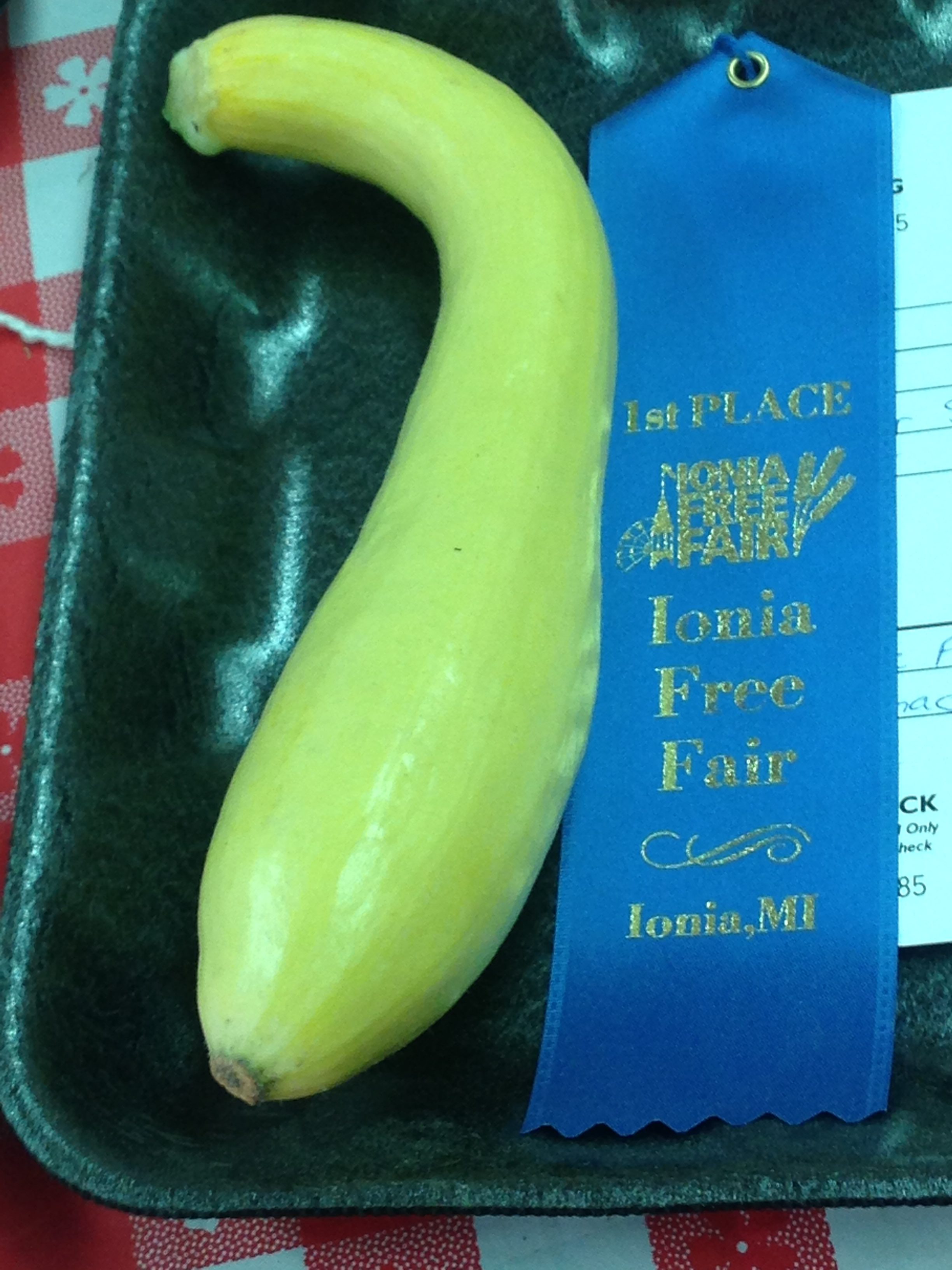THE CALVIN COLLEGE ELEPHANT STORY
By Ned Swift
Every summer, Calvin College where I worked, would rent out their field house for a few days to a community service organization. The community service organization, in turn, would host a traveling circus as a fund raiser. And every year, the circus would arrive early on Monday morning to get set up for the afternoon performance.
The contract that was established between the circus, the college and the service organization had strict terms and conditions about the use of the college property. Trucks were not to be driven on the grass, holes were not allowed to be drilled, and stakes were not allowed to be driven. In short, the property was not to be modified in any means or manner.
The college was very particular about maintaining the campus grounds. They were proud of the fact that the campus had the appearance of a park with lots of trees and nice green lawns. And to maintain this green appearance, the college had a vast array of underground sprinklers, sectioned off into zones. One of the most prominent zones was the soccer field.
Soccer was one of the college s main sports, so the college was very particular about the condition of the soccer field. The 12 inch well, which watered the soccer field, was right next to the soccer field and received its power from the field house.
Every day at 4PM, a little timer in the field house would go “click”, a contactor would go “clunk”, the well motor would go “whir” and the sprinklers on the soccer field would go “chit chit chit”. The grounds keeper, whose office was at the opposite end of the soccer field, would stand at his office window every day at 4PM, almost at parade rest, watching the glorious water cascading down on his green grass.
Now, the strict requirements on the property usage presented somewhat of a problem for the elephant handler at the circus. He would have preferred to unload the elephants from the truck and stake them to the ground under the shade of the trees, SOP. But, since no stakes were allowed at the college, past experience taught him that if he parked the trucks right next to the tree line, he could unload the elephants, chain them to the trucks and still keep them in the shade. But then came that fateful summer.
Prior to arriving at the college, the circus had canceled its last performance due to rain. This cancellation found the circus arriving at the college late Sunday evening rather than Monday morning as in years past. And unlike a Monday arrival, there was no one on the campus that Sunday night to supervise their setup.
And the regular elephant handler had taken ill. So he stayed inside hoping to recover by morning. After all, the assistant elephant handler should be able to get the elephants unloaded and chained up for the night.
Now, the assistant elephant handler had unloaded and staked the elephants many times before, all without incident. Unfortunately, he had never worked on the campus and was unaware of the “no stakes” rule. So, he unloaded the elephants and staked them to the ground next to the field house. And as fate would have it, one of the stakes was driven into the underground 440 VAC line that ran the well motor for the soccer field. But since the motor was on a timer, the mistake would not be discovered until the next day at 4 pm.
The next day dawned without incident. And no one from the campus noticed that the elephants were staked to the ground instead of chained to the trucks.
Promptly at 4PM the timer went “click”, the contactor went “clunk”, the elephant went “weeee” and the circuit breaker went “snap”. A second later, the elephant was on the ground on its side.
The circus people were at a loss as to what had happened to their elephant. Supposing that it had fainted from the heat, they proceeded to spray it with a water hose.
Meanwhile, the grounds keeper was standing at parade rest, looking out of his window and checking his watch. When 4:02 had past and there was still no glorious water cascading on his soccer field, he drove to the field house and immediately headed for the breaker panel.
Seeing that the breaker had popped, he headed for the well assuming that the pump motor must be bad. It was then that he saw the elephant, lying there peacefully, eyes closed, as if it were asleep.
A quick alignment of the well, the field house, the elephant and the stake led him to make the obvious conclusion; they had driven a stake through the 440 VAC line for the well. He immediately notified the plant manager via radio.
Meanwhile the circus people still unsure of what had happened to their elephant, started through the Yellow Pages looking for a Veterinarian. “Acme Vets? Do you work on large animals? You do! Could you come to the college right away? What have we got? It’s an elephant. Hello? Hello?” And thus was the response from the area Vets. Finally, someone suggested calling the local zoo.
The people at the zoo were very kind and understanding and suggested that perhaps the elephant had come in contact with some electricity. The plant manager, who had just arrived on the scene, confirmed that possibility. The people at the zoo went on to explain that elephants do not tolerate any electricity. An elephant s heart only beats about once a minute so even a small amount of electricity will throw them into cardiac arrest. When the plant manager heard the words “cardiac arrest”, the gears in his head started turning.
Now, the plant manager was a kind and gentle person who had a wealth of ideas for solving problems. If the elephant had gone into cardiac arrest, perhaps he could somehow perform CPR on him. After a few moments of thought, he came up with an idea. He could perform CPR on the elephant by slamming his pickup truck into the elephant s chest.
Needless to say, the circus folks were not impressed with the idea nor were they willing to entertain such an approach. Instead, they became more concerned with what to do with a dead elephant.
My sick and twisted mind kicked in. Elephant burgers! I thought. Then I thought, perhaps they could drag the elephant next to the highway and let the county deal with it. While I was still musing to myself, someone came up with an idea. Maybe the Vet school at MSU would be interested in a dead elephant. So, they gave the school a call.
The Vet school was interested but skeptical. They said that they would take the elephant but only if it was delivered. And the circus was willing to do just about anything to get rid of the dead elephant. After all, a dead elephant was bad publicity not to mention that it was upsetting to the other elephants. So a mode of transportation was needed.
Someone suggested that a dump truck would fit the bill. So, once again the circus folks headed for the yellow pages. And once again, the responses went something like this. “Hello, Acme Trucking? We would like you to haul something for us in your dump truck. What do we want hauled? A dead elephant. Hello? Hello?” Actually, some foul language usually came from the trucking companies before they would hang-up but that is not necessary for this post.
Finally, someone, who worked on campus, had a friend who owned a dump truck. And the dump truck owner then called a colleague who owned a crane. Within a half hour, the two of them were on the campus, ready to transport the elephant. The crane operator wrapped a chain around each leg of the elephant and hoisted it into the bed of the dump truck, gently laying it on its back. Then, the dump truck headed off to the MSU Vet school.
On the expressway, the dump truck driver was amused at the number of semi s that would start to pass him and then just kind of hang there, looking. One was even on his radio, presumably talking to his associates on the road. “Breaker, breaker, you ain”t gonna believe this….” Even a tour bus loaded with senior citizens seemed taken back by the sight, mouths open, eyes blinking.
When the dump truck got to the weigh station, the driver decided to go across the scales rather than risk a fine. And that is when things took a turn for the worse. Upon seeing the dump truck with its strange cargo, the weigh master immediately came out to personally inspect the load.
“Wha cha haulin?” “A dead elephant.” “A wha?” “A dead elephant.” “Gotta permit to haul a dead elephant?” “No. Do I need one?” The Weigh Master was stymied by that last question. No one had ever attempted to haul a dead elephant across his scales before, so he didn’t know. But just the odd nature of the cargo made him suspicious. “I’m gonna have to call this one in” he said as he headed back into the scale house.
When the Weigh Master called his superiors, they were also unaware of any special permits needed for hauling a dead elephant and suggested that he contact the Department of Natural Resources. The DNR stated that elephants were not indigenous to Michigan and therefore, not under their jurisdiction. They suggested that perhaps he should call the Department of Agriculture.
The Department of Agriculture asked “Is the elephant for human consumption?” “No.” “Is the elephant to be use for feeding animals?” “No.” “Is the elephant to be used for fertilizer?” “No.” “Well then, the Department of Agriculture has no jurisdiction in the matter.”
The Weigh Master was frustrated. He was sure that something was illegal. But, lacking any tangible reason for holding the truck driver and his cargo, he sent them on their way.
It was rather late by the time the elephant arrived at the Vet school. The weight station stop had added more drive time than anticipated. So, the arranged meeting time had come and gone and everyone had left the Vet school, assuming that the elephant was a no show.
Now, the truck driver had a dilemma. There was no one at the Vet school to receive the elephant and he was faced with the prospect of being stuck with the beast. So, the truck driver made a command decision. He backed the truck up alongside the building and pulled the lever. A minute later he was on the road headed home. Mission accomplished!
It was a warm summer evening. The stars were out and the crickets were chirping when the campus police swung by the Vet school. Shining his spot light on the buildings as he had done so many times in to past, he noticed something in the shadows. Slowing down, he redirected his light towards the area of interest. There was something laying there in the grass, something that looked very out of place, something that looked like…. an elephant!! Grabbing his radio, the officer quickly called it in.
Moments later, a second officer arrived on the scene. “Wha cha got?” “Looks like an elephant.” “Is it dead or alive?” “Beats me but it hasn’t moved since I got here.” “Maybe one of us should poke him to see.” “No. I think we better call for back up. If it ain’t dead it could get up at any moment. Better call the chief.
A half hour later, the chief arrived and the elephant still had not moved. Approaching the elephant, the chief touched him on the back. No response. The chief touched him a second time and noted that the elephant was cold. Stepping back, the chief announce that the elephant was dead and declared the area to be a crime scene.
The official yellow and black crime scene tape was being strung when the police photographer arrived. While a crime had definitely taken place, the police were unsure as to what that crime might be. Noting the heavy tire tracks in the grass leading up to the elephant, it became obvious that the elephant had been transported to this location and dumped. Suspecting foul play, they began calling around to see if anyone was missing an elephant.
Within an hour, the night sky at the Vet school was lit up like the grand opening of a Walmart. News crews had arrived and reporters were asking questions. Soon, the public became curious. Someone suggested that perhaps the elephant had been sucked up into the atmosphere by some tropical storm in Africa only to emerge here. Another suggested that it was the result of an alien abduction. Still another suggested a fraternity prank.
Finally, someone had the courtesy of notifying the director of the Vet school. When the director said “Oh, we thought that the elephant was going to be a no show” everything came to a halt. News crews started packing up, police cars shut off their flasher and the crime photographer left the scene. Within a half hour, the Vet school director was on the scene confirming that the elephant was dead and that they had agreed to accept it.
Now, the campus police had invested a certain amount of time and effort into this incident. And to add to the embarrassment of the matter, the local newspaper was having a slow news week so they decided to run the story anyway. “MSU police investigate suspicious elephant death. Was it murder?” With their credibility at stake the campus police wanted to charge someone with something though who and with what remained to be determined.
The first target was Calvin College. At best, they wanted to charge the college with unlawful dumping. But the college stated that they did not own the elephant nor did they arrange for the transportation and delivery of the elephant. Next came the circus. But since the Vet school had agreed to accept the elephant if delivered, there were no grounds for charges. Finally, they turned to the trucker. But he claimed he was only an agent of the circus and only did what he was hired to do, namely, deliver the elephant to the Vet school.
Frustrated, MSU sent a nasty letter to Calvin telling them that if they ever did anything like that again, they would be prosecuted.
But, this was not the end of the story. The circus tried to sue the college for the loss of a very expensive circus animal. The circus not only claimed the loss of the animal, they also claimed the loss of revenue from elephant rides. The judge asked the circus to produce the tax forms which would support the lost revenue claims. But, the circus declined. Finally, the plant manager from Calvin gave a sworn deposition that the circus had refused his effort to perform CPR on the elephant.
After a careful review of the case, the judge decided that the circus had violated their agreement with the college when they drove the stakes into the ground and that the college could not be held liable for the negligence of the circus. Case dismissed. Meanwhile, the college bookstore started selling wooded plaques featuring an upside down elephant and the words “Remember Trumpet”.





